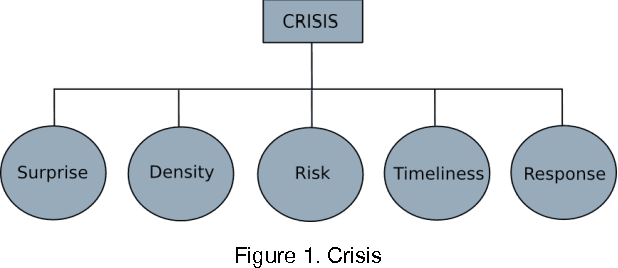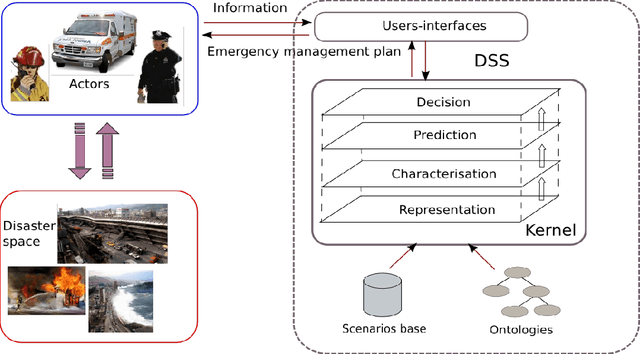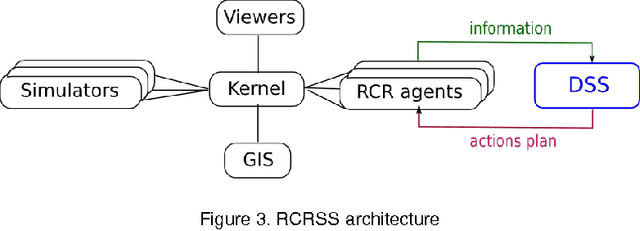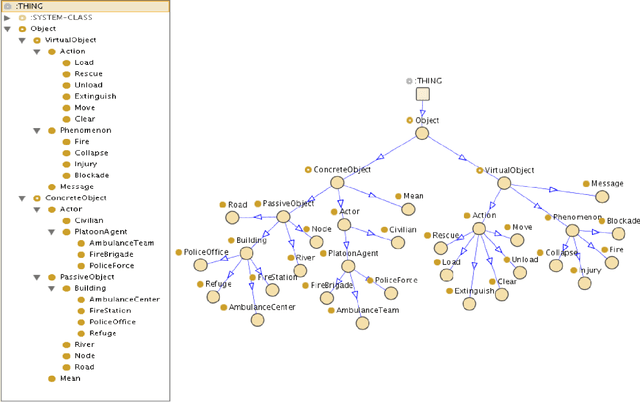Frederic Serin
Agent-Oriented Approach for Detecting and Managing Risks in Emergency Situations
Jul 03, 2009



Abstract:This paper presents an agent-oriented approach to build a decision support system aimed at helping emergency managers to detect and to manage risks. We stress the flexibility and the adaptivity characteristics that are crucial to build a robust and efficient system, able to resolve complex problems. The system should be independent as much as possible from the subject of study. Thereby, an original approach based on a mechanism of perception, representation, characterisation and assessment is proposed. The work described here is applied on the RoboCupRescue application. Experimentations and results are provided.
Information Modeling for a Dynamic Representation of an Emergency Situation
May 27, 2009



Abstract:In this paper we propose an approach to build a decision support system that can help emergency planners and responders to detect and manage emergency situations. The internal mechanism of the system is independent from the treated application. Therefore, we think the system may be used or adapted easily to different case studies. We focus here on a first step in the decision-support process which concerns the modeling of information issued from the perceived environment and their representation dynamically using a multiagent system. This modeling was applied on the RoboCupRescue Simulation System. An implementation and some results are presented here.
Agent-Based Decision Support System to Prevent and Manage Risk Situations
Apr 20, 2009



Abstract:The topic of risk prevention and emergency response has become a key social and political concern. One approach to address this challenge is to develop Decision Support Systems (DSS) that can help emergency planners and responders to detect emergencies, as well as to suggest possible course of actions to deal with the emergency. Our research work comes in this framework and aims to develop a DSS that must be generic as much as possible and independent from the case study.
Towards an Intelligent System for Risk Prevention and Management
Apr 20, 2009Abstract:Making a decision in a changeable and dynamic environment is an arduous task owing to the lack of information, their uncertainties and the unawareness of planners about the future evolution of incidents. The use of a decision support system is an efficient solution of this issue. Such a system can help emergency planners and responders to detect possible emergencies, as well as to suggest and evaluate possible courses of action to deal with the emergency. We are interested in our work to the modeling of a monitoring preventive and emergency management system, wherein we stress the generic aspect. In this paper we propose an agent-based architecture of this system and we describe a first step of our approach which is the modeling of information and their representation using a multiagent system.
* 11 pages
 Add to Chrome
Add to Chrome Add to Firefox
Add to Firefox Add to Edge
Add to Edge